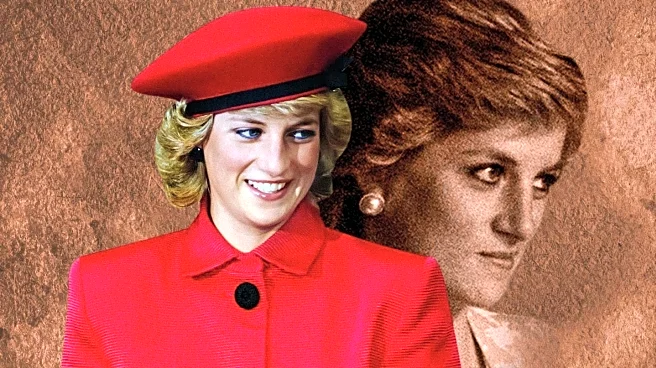What's Happening?
Katharine, Duchess of Kent, has died at the age of 92, as confirmed by Buckingham Palace. She passed away peacefully at Kensington Palace, surrounded by her family. Katharine was married to Prince Edward, the Duke of Kent, and was a first cousin to Queen Elizabeth II. Known for her passion for music and empathy for young people, she was actively involved in various charitable organizations. Her notable public appearances included comforting Czech tennis player Jana Novotna at Wimbledon in 1993. Katharine's contributions to music and youth programs were significant, including hosting performances at Buckingham Palace and working as a part-time music teacher.
Why It's Important?
The Duchess of Kent's death marks the loss of a prominent figure in the British royal family, known for her dedication to charitable causes. Her work in music and youth advocacy has had a lasting impact, demonstrating the role of royals in supporting cultural and social initiatives. Her compassionate actions at Wimbledon and her involvement in music education highlight the importance of empathy and support in public service. Her passing may lead to reflections on the legacy of royal patronage and its influence on society, as well as the future of such initiatives within the royal family.
What's Next?
In the wake of her passing, the royal family will join the Duke of Kent and his children in mourning. There may be public tributes and memorials celebrating her life and contributions. The Duchess's legacy in music and youth advocacy could inspire continued support for these causes by younger royals. Discussions may arise about how to honor her memory through ongoing charitable work, ensuring her impact is felt for generations to come. The royal family may also consider how her life and work can inform their approach to public service and philanthropy.
Beyond the Headlines
Katharine's life offers insights into the cultural and ethical dimensions of royal patronage. Her dedication to music and youth programs underscores the potential for royals to influence societal development positively. Her conversion to Catholicism in 1994 was a significant personal decision, reflecting the evolving religious landscape within the royal family. Her discreet approach to royal duties highlights the balance between public service and personal privacy, a topic of ongoing relevance in discussions about the monarchy.











